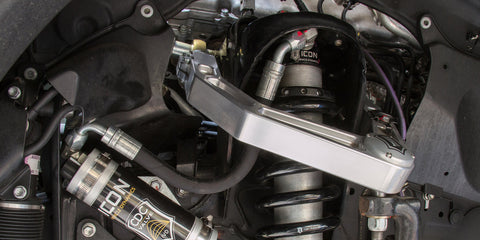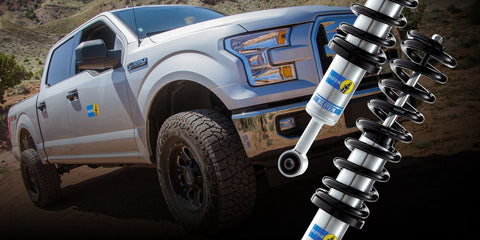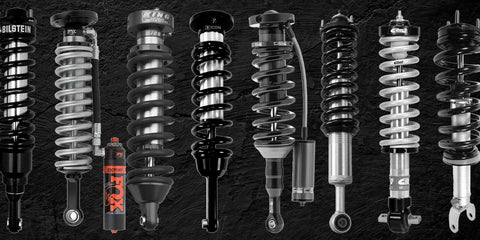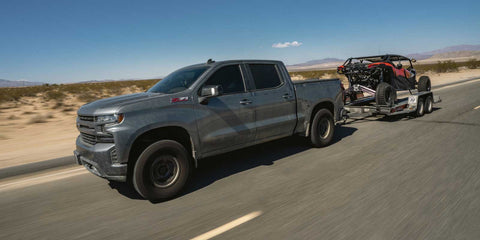Fox Performance Elite DSC Shocks vs King Shocks Compression Adjustable
Posted by Sean Reyes on
Before we get into the details, there are 3 key definitions to know. Shaft speeds are typically measured in inches-per-second.
Low-Speed Compression / Low Shaft Speeds - daily driver duties, pavement, highways, streets, graded trails, gravel trails - all of these are low shock speeds which the LSC addresses. (0-10" / sec)
Medium-Speed Compression / Medium Shaft Speeds - this is the shaft speeds that occur when the suspension starts working and cycling through more range. Rutted trails, washboard, desert terrain, and other environments that cycle the suspension through 50-75% of its range in a short amount of time. (10-40" / sec)
High-Speed Compression / High Shaft Speeds - going fast off-road with harder hits that see full suspension articulation quickly, whoops, curbs, fast g-outs - all the things that usually make you say 'oh shit' when off-road. (40"+ / sec)
Even though both are a 2.5" shock diameter with reservoirs of similar size, the baseline valving is significantly different. At the very basic level, King's piston allows more oil flow than Fox, due to the amount of compression and rebound ports in the linear piston that they both feature. This effects shock valving and the goal of how the shocks are tuned.
On an identical vehicle
Kings typically feel a bit more 'plush' compared to Fox. Fox's low-speed (LSC) handling is typically firmer, which gives comfort/plush advantage to King.
Part of this is because of the greater oil flow of the King piston, more oil-flow means looser feel in the LSC range. The tradeoff here is that Fox's vehicle handling is usually superior for a daily driver, with the tradeoff of that 'plushy' feel.
King shocks are typically tuned for medium speed support, so they remain loose in the LSC and HSC range. This is why their 30-click compression adjuster addresses medium speed adjustment only, and dont really effect LSC or HSC like the FOX DSC.
Now both of these brands' tuning theories and approaches start to make sense.
Translation
King's adjuster is going to tune how medium-shaft-speed feels, so when the shock is seeing a lot of action over moderate terrain. Not large whoops or large curbs, but more akin to going fast through washes, rutted out trails, and other off-road terrain that sees decent suspension articulation.
Fox's DSC (dual speed compression) adjuster addresses both low-shock-speed and high-shock-speed events. The softer the dial is set to, the looser the vehicle is going to feel in the given speeds. LSC is to control body roll on the road or pavement, whether loose or tight. HSC is to control harder hits and large suspension actions. Both the LSC and HSC do work in unison as well, LSC affects how fast that shock can move through the low and medium speed ranges before the piston reaches max travel in either range (where HSC adjustment occurs).





